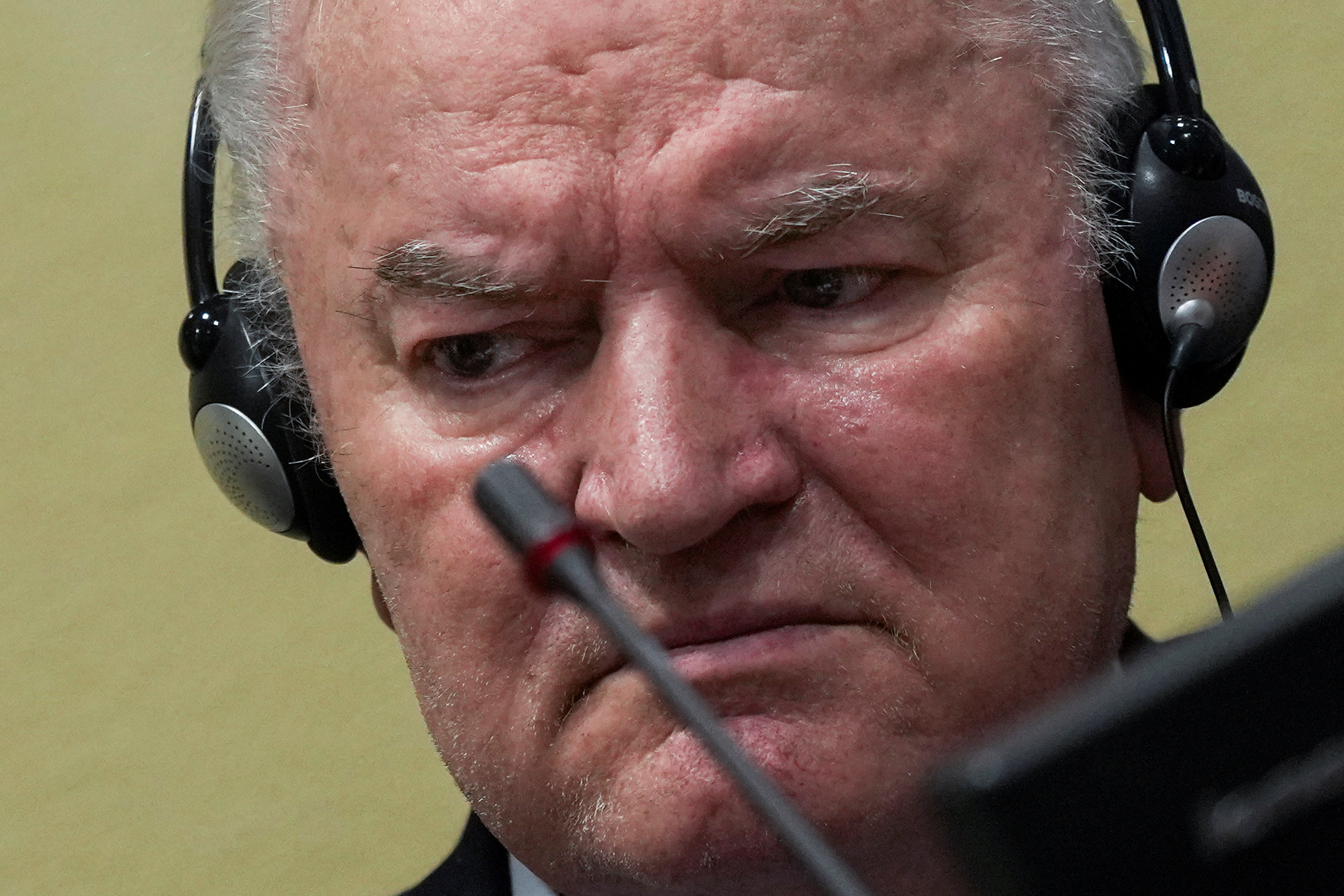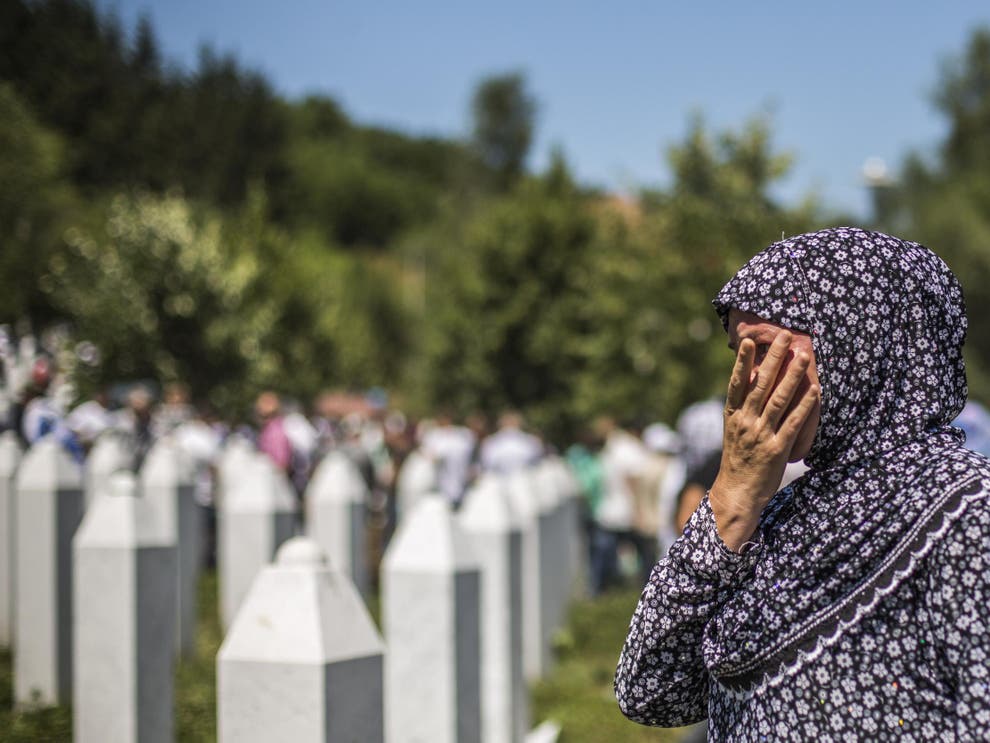Ratko Mladic: Bosnian Serb military chief loses bid to overturn genocide conviction at UN court
Mladic, 79, was the last major figure from the Bosnian conflict to face justice

UN appeals judges have upheld the convictions of former Bosnian Serb military chief Ratko Mladic for genocide and confirmed his life sentence.
The judgment means the 79-year-old former general who had a pivotal role in the massacre of some 8,000 people at Srebrenica in 1995 and terrorised Sarajevo in a 43-month siege during the Bosnian war in the mid-1990s, will spend the rest of his life in prison.
Mladic joins ex-Bosnian Serb president, Radovan Karadzic, in serving a life sentence for masterminding ethnic bloodshed in the Bosnian war that left more than 100,000 dead and millions homeless.
He was convicted in 2017 on charges of genocide, crimes against humanity and war crimes, but appealed against both the verdict and the sentence.
Lawyers representing Mladic had argued that the former general could not be held responsible for possible crimes committed by his subordinates and sought an acquittal or a retrial.
However, a written summary of the appeals judgement today said it “dismisses Mladic’s appeal in its entirety... dismisses the prosecution’s appeal in its entirety... affirms the sentence of life imprisonment imposed on Mladic by the trial chamber.”
The appeals judges said that Mladic would remain in custody in The Hague while arrangements were made for his transfer to a country where he will serve his sentence. However, it is not yet known where Mladic will serve out his jail time.
Mladic, known as the “Butcher of Bosnia”, is the last major figure from the conflict that ended more than a quarter of a century ago to face justice.
After the war in Bosnia ended, Mladic went into hiding, but was finally arrested in 2011 after 16 years on the run from authorities.
In 2017 at the UN’s International Criminal Tribunal for the former Yugoslavia he was found guilty of the genocide at Srebrenica where 8,000 Muslim men and boys were killed.
“The accused’s acts were so instrumental to the commission of the crimes that without them, the crimes would not have been committed as they were,” the court had found at the time.
The judgement today was welcomed as “an important affirmation of the rule of law” by Kathryne Bomberger, director-general of the International Commission on Missing Persons that helped to locate victims of atrocities in Bosnia.
“An important chapter in the history of international justice and the history of the Western Balkans conflict closed today,” she said.
“Ramifications of the judgement in case of Mladic and in previous cases, such as that of Radovan Karadzic, go beyond the Western Balkans. This gives hope to survivors of atrocity, including families of the missing and disappeared persons around the world, that justice can be delivered.”

US President Joe Biden said: “The historic judgment shows that those who commit horrific crimes will be held accountable. It also reinforces our shared resolve to prevent future atrocities from occurring anywhere in the world.
“My thoughts today are with all the surviving families of the many victims of Mladic‘s atrocities. We can never erase the tragedy of their deaths, but I hope today’s judgment provides some solace to all those who are grieving.”
Amnesty International’s Europe director Nils Muiznieks said the verdict “sends a powerful message around the world that impunity cannot, and will not, be tolerated. Whilst this sentence will bring some closure to the surviving victims and their relatives, the physical and psychological scars will remain,” he said.
“It is important to remember that thousands of cases of enforced disappearances remain unresolved, and many thousands of victims and their families continue to be denied access to justice, truth and reparation.”
Additional reporting by agencies
Subscribe to Independent Premium to bookmark this article
Want to bookmark your favourite articles and stories to read or reference later? Start your Independent Premium subscription today.

Join our commenting forum
Join thought-provoking conversations, follow other Independent readers and see their replies
Comments